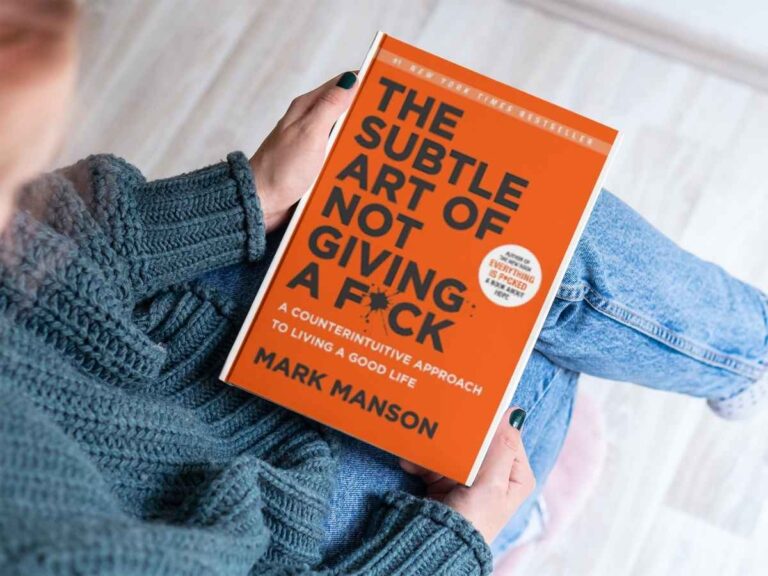
If you decide to work with me, one of the first things I will ask you is to start a happiness journal. This is a journal where you write on a regular basis about different significant events, as well as any thoughts and feelings that result from these events.
Naturally, there is a lot more to say about a happiness journal, which is why today I want to dive deep into the benefits and reasons why you should start following a happiness journal today and make it part of your daily routine.
In this way, I highly recommend to all my clients to write a happiness journal, but I also keep a happiness journal myself, where I write on a semi-regular basis. This practice helps me process my different emotions and provides almost a form of self-therapy, which is naturally very beneficial. Additionally, my clients can show me their entries and receive professional feedback.
1. When to Write a Happiness Journal
First, I recommend starting to write a happiness journal on a daily basis, or at least weekly if someone doesn’t have enough time. This is because initially, most people have a lot of information in their heads that they are trying to process. Keeping all this information in our minds alone is almost like keeping open tabs in your browser on a computer, which over time can accumulate into one big mess of thoughts, leading many people to spend virtually all their lives in their heads, repeatedly having conversations with themselves, sometimes not being able to sleep because they are so preoccupied with their thoughts.
Yes, writing your thoughts and feelings does help to close some of these extra tabs in your mind, finding new energy and focus, which can now be directed to better use.
Sure, I realize that there is always something more to write about, as this process can be almost as infinite as our ongoing and infinitely complex lives. However, since we don’t have an infinite amount of time and we may have better things to do than just write in our happiness journal indefinitely, I have a few suggestions. Based on my experience of writing a happiness journal, and that of my clients, I have accumulated a host of best practices that can make this process shorter and more efficient, which I would like to share with you today.
In this way, I first recommend starting to write on a daily basis just to catch up with some of the most urgent and relevant thoughts that we have in our heads. After this initial catching up process is done, we can write every other day or at least once per week, so we can start focusing on the new things as they come up. In my experience, waiting for longer than a week is bad as it eventually leads to many new mental tabs being opened, and us realizing that there was actually enough information to process in writing.
2. Lessons from a Happiness Journal
While writing a happiness journal, there are a few things that stand out, lessons of life, so to say. I like to highlight those lessons while I’m writing my happiness journal. In the end, I separate them from the main text, as usually, there are more than enough things that aren’t relevant or are superficial to a degree that we just write them as a structure to what we are writing about.
This compilation of lessons from a happiness journal can be further organized into a meaningful to-do list, suggesting that sometimes certain lessons come again and again until a lesson is learned.
So, technically speaking, if we already wrote about a certain issue and added it to our to-do list, then we don’t have to write about it again unless we want to. This is one way to keep the writing process less tedious and lengthy. Once we’ve written about something, we usually don’t have to write about it again provided that we did a good enough job the first time. Certainly, there may be something to add, but we will know whether it is important enough to write about again.
3. What a Happiness Journal Looks Like
Living in a digital age, I personally find it better to write my happiness journal on a computer. This is because keeping extensive physical journals can be wasteful in terms of paper consumption, it is more difficult in terms of organization because you may want to keep those journals somewhere, but at the same time, and it is not likely that you will be revisiting them often enough, so they will just clog your space.
Furthermore, later when you are transcribing the important lessons that you got from your happiness journal entries, it will be much easier to do on the computer rather than on paper. On the computer, you can simply copy and paste lessons into the appropriate document or folder, while on paper, you would need to transcribe everything by hand. Additionally, adding new lessons on paper to already existing text could require you to rewrite everything from scratch, which can be a frustrating and time-consuming process. However, on the computer, this is not an issue.
Actually, nowadays, I combine both my mobile phone and computer to write my happiness journal, as sometimes it is easier to make entries on the go on a mobile phone, while on the computer it is much easier to organize everything that is already written.
In this way, my happiness journal entry resembles a daily story that starts usually in the morning and jumps to the most relevant event of that day, as I describe what happened and state the most important takeaways from the day.
4. I Use Evernote as My Happiness Journal
Evernote is an app that I like to use because it offers the most functionalities to keep a well-organized happiness journal.
First, it synchronizes between the phone and computer, so the same entry can be reviewed without having it in two places.
Second, it has a one-click “Add” widget that allows me to add new entries on the go anywhere you are, so I don’t have to keep those ideas in your head, possibly forgetting them and becoming frustrated.
This is important because memory is at least partially circumstantial, meaning that we tend to remember certain things while we find ourselves in certain circumstances. However, as life is dynamic and ever-changing, once we leave those circumstances, we can easily forget something that we wanted to note.
For example, when I’m inside a bathroom, I can see that my toothpaste is finished. However, once I am in the store, I might completely forget to buy new toothpaste. Similarly, sometimes as soon as I leave the bathroom, I completely forget that I wanted to buy toothpaste. On other occasions, I can make an effort to remember that I need toothpaste, but as soon as someone says something or my eyes dart to something remotely interesting, I forget about the toothpaste and a million other things that I wanted to do.
In this way, ideas come in a continuous stream of consciousness, and if we fail to register them at that specific moment, it’s like opening a browser tab and keeping it open until the entry is registered and resolved. It can stay open until we remember to close the tab, meaning that entering the correct data at the correct time can make a difference between having an easier or harder life.
At this stage, I feel like I should note that I’m not sponsoring or associated with Evernote. This is just one of the apps that I find useful, and it is a paid app with some free features which should be enough to get you started. You don’t need Evernote to get started, and you can find your own organization system that works best for you. It just works very well for me, so I use it for my personal life and work, and I recommend it to you.
5. A,B, and C-level entries
Following the above-mentioned organization of lessons in your life, we should remember that not everything will be at the same level of importance to you. For example, when given the choice between receiving $1 or $1000, we naturally tend to prefer $1000. Similarly, some of your goals will be more important than others, which is why I like to organize all my goals into three levels: A, B, and C.
An A-level goal is something very important in my life, which I should focus most of my time and energy on pursuing. I’d say about 80% of all my time should go into a list of activities.
B-level goals are also important, but perhaps not as much as A-level goals. These goals are things I want to do, and I want to dedicate some time to them, which could be approximately 16% of my time.
Lastly, C-level goals are things that are nice to have, but achieving them usually does not translate into a significant increase in my personal well-being.
A few more things to note about this ABC-level organization, such as that we should only have a very few A-level goals, such as 3 to 5 goals total. B-level goals can be significantly more, around say 20 goals, and the rest should be C-level goals.
Naturally, A-level goals are typically the most challenging to achieve, as anything worthwhile has likely already been accomplished. Therefore, more complex objectives are the ones that remain. If something is complicated but not important, then why are you doing it? Furthermore, some C-level goals will be easy to accomplish, and we often get caught up in trying to achieve these goals. However, over time, we may notice that our lives are not moving in any meaningful direction because we aren’t focused on anything important in the first place. This suggests again that we should focus predominantly on the most important things in our lives, which are usually the A-level goals.
Furthermore, in a world where there are a million things to do, sometimes it’s very hard to keep mindful of everything you want to do or there is to do and organize it in a meaningful way. This is why I also believe that many people fail to achieve any significant success in their lives simply because they get overwhelmed by the never-ending flood of information and struggle to organize their heads alone.
It is for this reason that keeping all you have to do in one place is so important, as it helps provide an overview to keep everything organized and at the forefront of your mind in a timely manner.
It’s like companies that have a staff of employees to help sort through all this different information and prioritize for any given product. Then there’s you and me, thinking we can do it all alone and just in our heads. This idea is laughable, and yet it is exactly how most people lead their lives.
6. Example of my happiness journal entry
Perhaps you are interested in reading a real-life example of my happiness journal entry. Here is an excerpt from one of my journals:
“Today, I woke up late, which isn’t ideal because I know that my mornings are the most productive time of my day. I wasted a lot of time trying to clean and organize my things because I didn’t do it the night before, so I ended up wasting more time.
Two potential lessons from this are to set an alarm to wake up in a timely manner and to prepare in advance for the next day.
Later in the day, I met with John and learned more about his life and business. It was an intriguing conversation, and I should make an effort to speak to John more often and dive deeper into his business. I also plan to buy the book he recommended.
As the evening approached, I realized I hadn’t been to the gym for several days, and my body is aching. Since I didn’t have time to go today, I decided to schedule a gym session for tomorrow.
I also noted that I should cut back on eating sweets, maybe even throw away some of them from my home to reduce temptation.”
In this entry, I mainly focused on the events of the day and the lessons learned. Sometimes, however, it’s also nice to write about less important details such as “I woke up, went here, went there, spoke to this or that person, did this or that,” even if these details won’t be the important part of the story, just to remember the day as a whole. Interestingly, recalling some of these seemingly small and insignificant details can sometimes lead to valuable reflections or insights.
This is because sometimes I don’t remember everything exactly as it happened in one go, but reviewing my notes after some time does give me some much-needed clarity and a different perspective on the events as they happened. In this way, also for Optimal Happiness, I often reread my new and old blog posts, as looking at the same material several times helps me to see if I missed something. This may require additional time and effort, but it can be valuable in gaining a deeper understanding of my memories and experiences.
7. Making Happiness Journal Part of Your Routine
I can’t emphasize enough the importance of making happiness a part of your routine, as if you only try it once or twice, you will experience some immediate benefits from this practice. However, the more consistently you engage in it, the more value you will get. To this point, I, one of the happiest people alive, maintain a happiness journal as part of my daily routine. Therefore, I believe that anyone interested in increasing their happiness should seriously consider incorporating this practice into their lives.
This being said, adding a new routine to an already busy schedule can be tough, but just remember that by processing different thoughts and feelings that you may accumulate over your days, weeks, and years of your life, you can liberate a lot of processing power that you can reinvest back into happiness, journaling, and many other efforts in life. In fact, you will find clarity and focus to do the things that are more important, which means that a happiness journal helps to liberate a lot of already busy time, increases your efficiency, and brings about a better use of time.
In fact, when I don’t write in my happiness journal for some time, I can feel how my brain is starting to slowly get clogged up with different feelings, thoughts, and emotions that are not quite processed, as well as missing out on some important lessons from my daily life that I would otherwise want to remember and act upon.
In other words, a happiness journal gives more than it takes, making it one of the main tools for anyone who wants to be more successful and happy in their lives.
Happiness Journal: Last Words
Interestingly, as I started to write in my happiness journal, my happiness levels have increased drastically. Now, I am mindful of my priorities, ideas, and everything I want to achieve.
I am more productive, and I sleep better because my mind is no longer cluttered with an endless stream of ideas, thoughts, and to-do lists. Everything is already written out and organized, so all I need to do is consult my to-do list for that specific day, and I’m ready to go.
Lastly, my clients receive a wealth of value from having me review their happiness journals, as it helps to have a happiness expert with several years of experience examine what’s happening in their minds and hearts, and how to organize it in a professional and meaningful way. After all, one right piece of advice can change a person’s life, not to mention the many pieces of advice they receive from having sessions with me.
So, if you or someone you know needs happiness coaching, you are at the right place. Just send us an email or book a 30-minute free call where we can review your goals and challenges, making a happiness plan that you will immediately be able to apply to your life positively affecting your enjoyment and love for life.
Stay happy.














